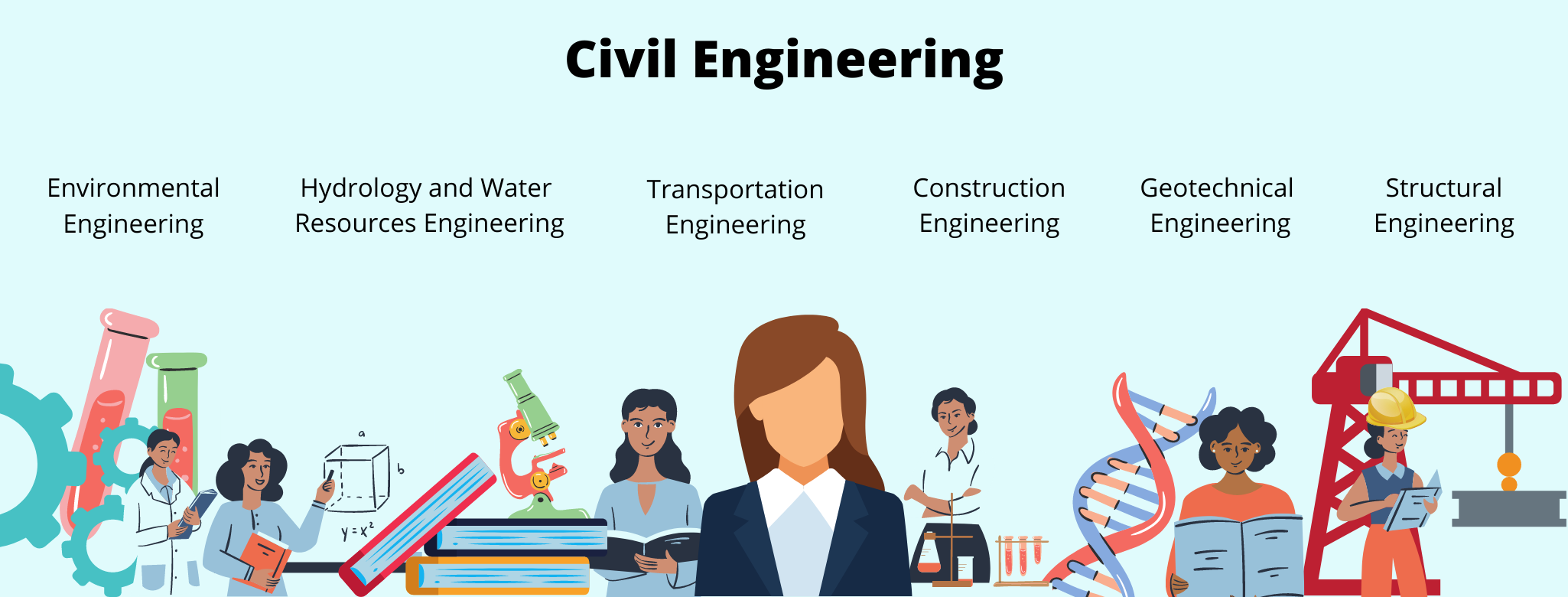· Environmental engineers prevent, detect, reduce, and eliminate pollutants in water, soil, and air.
· Hydrology and water resources engineers manage and transport water.
· Transportation engineers design, construct, and maintain transportation infrastructure.
· Construction engineers plan and manage the construction process.
· Geotechnical engineers study the soil properties of a construction site and secure the foundation of structures.
· Structural engineers design structural systems.
Civil engineers may work in the academic sector as professors and researchers or in the government and private sectors as designers, managers, directors, and policy makers. Within these sectors civil engineers oversee dams, stormwater collection systems, wastewater treatment plants, remediation sites, roads, bridges, airports, and other systems.


 RSS Feed
RSS Feed

